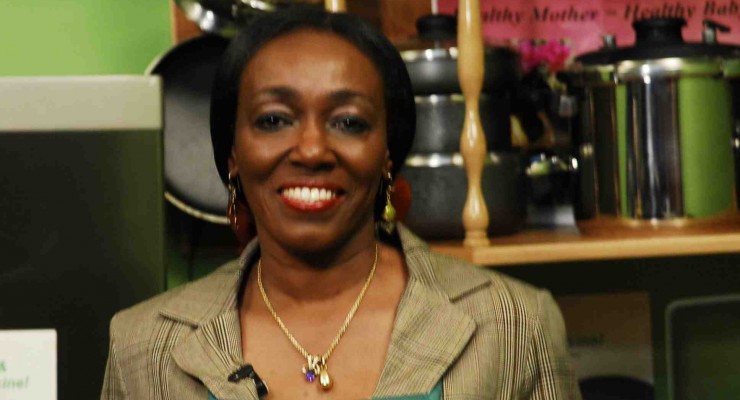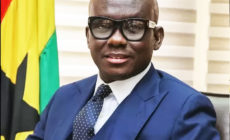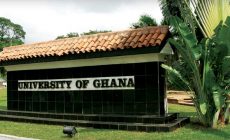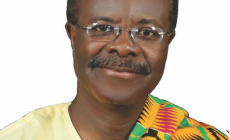Mrs. Rawlings confirms receipt of $4m judgement debt
- Posted on
- Comment
 Former First Lady, Nana Konadu Agyemang-Rawlings, yesterday appeared before the Commission of Enquiry investigating the payment of judgement debts to testify in the case in which her company was given $4,150, 27.50 as judgement debt.
Former First Lady, Nana Konadu Agyemang-Rawlings, yesterday appeared before the Commission of Enquiry investigating the payment of judgement debts to testify in the case in which her company was given $4,150, 27.50 as judgement debt.
She confirmed the payment to Calf Cocoa International, which is partly owned by Carridem Development Company Limited, the investment wing of the 31st December Women’s Movement (DWM) of which she is the president, and China International Corporation Company, but insisted that the amount paid was in Cedis and not dollars.
Tony Lithur, who had represented Calf Cocoa in court, had told the Sole Commission that he secured $4.15 million for the company because the government at the time refused to release about $2.6 million to Calf Cocoa for its operations.
Interestingly, Nana Konadu went to the com-mission with a different lawyer – sidelining Tony Lithur, who secured the judgement debt for her.
Testimony
When the case, entitled ‘The CEO, Calf Cocoa Inter-national versus the Attorney General’ was called yesterday, Mrs. Rawlings mounted the witness box alongside her lawyer, George Bernard Shaw.
She told Sole Commissioner Justice Yaw Apau of the Court of Appeal that Carridem decided to go into the manufacturing of cocoa and subsequently had assistance from the government of China.
Mrs. Rawlings said Calf Cocoa was then given con-cessionary loan by the Chinese adding, “So we started Calf Cocoa in 1996 or 1997, -acquiring the land and everything. The shareholding was 49 percent for my organisation and 51 percent for the Chinese company brought to us by their government.
“We acquired this con-cessionary loan and we were supposed to take it in bits. Whenever we needed funds for the project we wrote to the Ministry of Finance and they gave us the amount that was requested for,” she said.
The Problem
Nana Konadu articulated, “Sometime in 2002, we wrote to the ministry informing them that we had completed everything and we would like to start the project in 2003. It was at that time that we started having problems of who owned the company.”
She maintained, “Politics unfortunately came to play in this project and it was difficult to get the money. From 2003 when we were supposed to have started manufacturing cocoa powder, cocoa cake and cocoa butter, it was impossible to start.”
She said when things got out of hand, “The Chinese sort of pulled out because they said there was too much political interference,” adding, “We decided to go to court to fight the case in 2005 and judgement was delivered in 2008.”
According to the former First Lady, the government appealed against the case but lost against Calf Cocoa and in 2009 “we could actually go to the premises again.”
She posited that in the process, facilities in the company deteriorated and water and electricity discon-nected, making refurbishment of the place very expensive.
Sabotage
Dometi Kofi Sorkpor, counsel for the commission, asked Nana Konadu if it was “this unnecessary inter-ference” from the government that resulted in the truncation of the project, and she said “absolutely, it has been so.”
“From 2002 when the problem started, it has not stopped. It carried through to the new government of 2009 and it is carrying through in the government of today. I don’t know whether they really want to let this place function so that we can employ the 2800 people that this factory can employ,” Nana Konadu averred.
Justice Apau also enquired from her what was stopping the Chinese from continuing with the project since judgement had already been obtained and she replied that “they have given us option to sell their shares. I think they are not comfortable with what is going on.”
According to her, “We tried on a number of occasions to get certain loans for the project but the banks have not been coming forth either. There was a huge amount that they said was going to be given to companies in cocoa production so we also applied to ADB. I know that some companies were given $8 million, $10 million and so on but till date our document has not even been processed.”
Mrs. Rawlings added, “We have a new business plan. We are doing the grounds work. Two companies we contacted say they want to wait for the economy to get better before they can invest in the country.”
-Daily Guide










 (Selorm) |
(Selorm) |  (Nana Kwesi)
(Nana Kwesi)